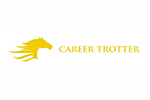When it comes to looking for a multilingual job abroad – there are a number of stages you will go through as part of the recruitment process before you can sit comfortably in your new overseas office.
With Careertrotter, we do our very best to make sure each stage within the recruitment process is as simple and as carefree as possible. But, as in life, no one can control everything; the recruitment process will differ depending on where in the world you are looking to work; what we can promise is that we will be with you to help you the entire way.
Careertrotter works with many multilingual companies in countries all across the EU, mainly in Ireland, Germany, Poland, the Netherlands and in France. Each one has their own unique way of handling the recruitment process, in line with their culture.
We have spent some time compiling all our knowledge on each country’s specific cultures, routines and protocols for their recruitment process – gleaned from those in the know and who have been through the process before – to help you guide you through the application process for your new role. After all, if you are a German Speaker looking to live and work in Ireland, you may not be used to the different culture, types of interview questions, or even all that comfortable with the fact that the recruitment process in Ireland is much quicker than in Germany. After all, in Ireland ”ASAP” might mean “send a CV today and get feedback tomorrow”, whereas in Germany, ”ASAP” will usually mean “send a CV today and get feedback next week”.
Type of Interview Questions 
Ireland
In Ireland, recruiters tend to be more focussed on competency, and you will be expected to give examples without being asked. Rigorous preparation is needed for interviews in Ireland because you will need a number of examples ready.
Germany
In Germany, examples are not as important in an interview, and the questions asked will be more motivational. These questions are very important, as they allow the recruiter to really see why somebody took certain steps. In Germany, they are likely to go through your CV in great detail before you enter the interview and during, so it’s important make sure you know it inside and out.
The Netherlands
They Dutch don’t tend to have a favoured question type, meaning you should need to prepare for all three: Personal, Motivational and Competency Based.
France
In France, the types of questions you will be asked will depend on the language job you are going for; typically, personal interview questions are more important. In France they often rely quite a bit on what you have experience in and will want to hear about it. It’s important to know that in France, it’s not just your answers they are interested in, it is also in your personal presentation – it is really important to dress to impress for both face-to-face and video calls.
Poland
In Poland, you can expect the questions asked to be more focussed on what your motivations are to work for that particular company, and why living & working in Poland appeals to you; make sure you sell the reasons why Poland is the place for you.
No matter where they are interviewing, candidates will always be asked technical questions (especially for IT and Finance), and will need to explain their previous experience in relation to the language job that they are applying – or, if they don`t have the experience, why they will be able to step in that specific field/industry.
How long until a job is offered?
The amount of time it will take from Careertrotter sending your CV to a client in a specific country to receiving a successful language job offer will vary greatly by country.
Ireland
Here it will depend on the seniority of the language job, and the company itself; even the number of interviews you need to sit as part of the process can vary. The amount of time you need to wait to receive an offer will also vary, but this is usually shorter then what you would expect in Germany – perhaps one month max, although it’s important to keep in mind that certain companies could take longer.
Germany
You will usually sit 2-3 interviews as part of the application process: there is almost always a face-to-face and a trial day with the company. In Germany, it is normal to then wait up to two months for the language job to be offered.
The Netherlands
As in Germany, each application process will usually consist of 2-3 interviews, and you will usually find out within one month for the offer – depending on start date of course, as if this is close, they may pull a few strings to get you in for it.
France
You will have to sit between 2-3 interviews, and it can take between up to four weeks for the successful candidate to receive a job offer depending on the language job.
Poland
In Poland the application can be generally quick; you may well be offered the language job after just one interview or a maximum of two. It is however, important to remember that in Poland, you must legally sit a medical check before working for any company and this will usually takes place during the interview process.
Overall Cultural Differences
Ireland
- In Ireland there is generally a laid back attitude
- The people here are very sociable, respectful and friendly
- Generally the Irish are not fond of a long silence, making them very good with Small Talk
- A cup of tea is the answer to everything!
- Not the best time keepers – if an Irishman says they will meet at 8, you can usually expect to see them somewhere between 8 and 8:30! This is where ‘ish’ comes in to play – adding ‘ish’ after a time gives the Irishman half an hour to play with.
Source: Kellie Anne
Germany
- Germans are very direct, no beating around the bush; if they want something, they just ask.
- The Germans are very focussed on work; they want to be efficient.
- They are very good with time keeping, and very punctual.
- In Germany, they definitely like rules.
Source: Rike
The Netherlands
- The Dutch often like to feel like our opinions are very important.
- When it comes to anything in life, those in the Netherlands like to have the feeling/connection/wow factor/falling in love/gut feeling this is a match.
- Bikes! In Holland they love their bikes – in Amsterdam you will usually see more bikes than cars.
- The Dutch love a bargain!
Source: Anneloes, Mitchell & Herbert
France
- In France, they tend to be quite formal, specifically in the workplace. As a piece of advice, we suggest mirroring the attitude and language level of a recruiter; it will help you in your day to day life and in searching for your next language job.
- The French might not be the friendliest at first; they need some time to add you to their social group – but give them time and they’ll be friends for life.
- In France, complaining is often part of the culture.
Source: Celine
Poland
- Polish people are very respectful, friendly people who like to help others.
- They are known for being straightforward; they don’t sugar coat situations
- Business is conducted slowly – you will need to be patient for everything to go through specific protocols.
- Punctuality is taken very seriously in Poland; you certainly wouldn’t want to be late for anything.
- In terms of Small Talk, the Polish are not averse to it; it is usually used at the start of meetings in order to develop a relationship – but you won’t see it anywhere else.
Source: Andrei & Kellie Anne
Article by Career Trotter

